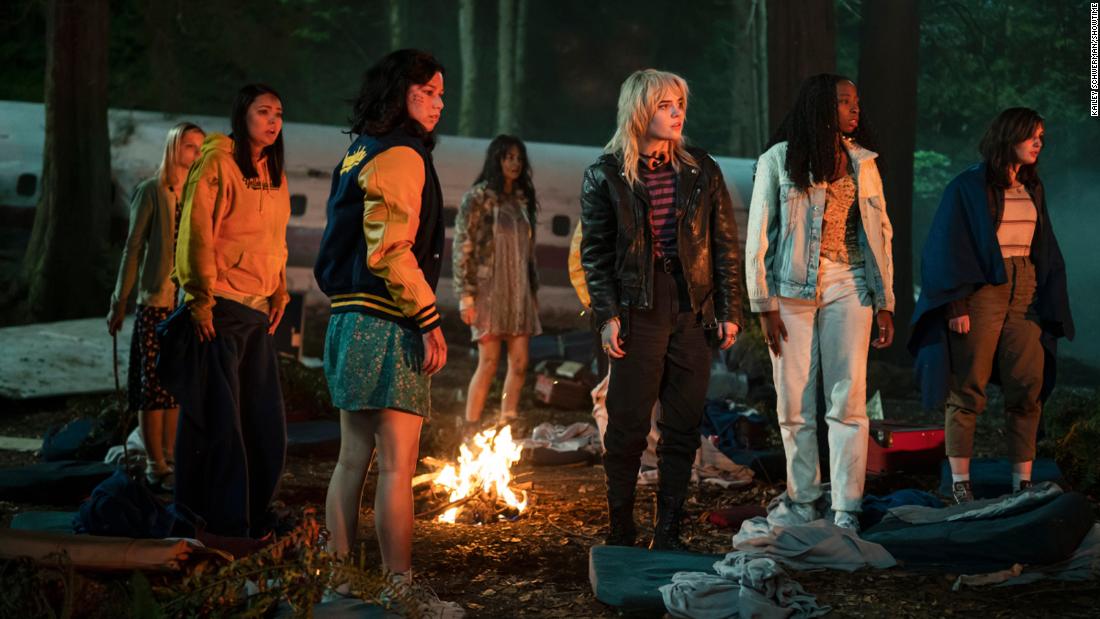(CNN)When rapper Megan Thee Stallion's new song, "Thot Shit," dropped around mid-June, most thought it was only a matter of time until a new dance would pop up for it on TikTok.
It's become a predictable trend. A fun, upbeat song and accompanying choreography go viral on the app, where thousands of people film themselves doing the same dance. Sometimes the dance originates via the artist -- like when rapper Young Thug tried to get users to dance to his new song "Ski" -- but oftentimes, the dance is created organically.
For Megan Thee Stallion's new song, though, a signature dance never came. Instead, Black creators from whom these dances often originate, essentially went on "strike," refusing to upload a dance for the new track and claiming that their work was being exploited.
At the center of the strike is the question of compensation and credit: Who is allowed to profit, and who is kept at the margin.
It's happened before
It's become a notable cycle on TikTok: A Black creator makes a dance, but a White influencer profits.
In 2019, Atlanta teenager Jalaiah Harmon, who now has close to 1 million TikTok followers, posted a video on Instagram of a dance she created to the song "Lottery (Renegade)" by K Camp. The dance made its way to TikTok, and when influencer Charli D'Amelio, who has 119 million TikTok followers, posted a video doing Harmon's dance, it blew up. But Harmon didn't get any of the initial credit.
It happened again earlier this year, when dancer and TikTok personality Addison Rae was invited onto "The Tonight Show with Jimmy Fallon" to perform a variety of TikTok dances. One of the dances she performed, to Cardi B's "Up," wasn't her choreography. It was created by two Texas teenagers, Mya Johnson and Chris Cotter, who are Black. When someone posted a side-by-side video of the two dances on social media, users were quick to note that Johnson and Cotter's version appeared more energetic, questioning why Rae performed the dance rather than the original creators.

"This isn't the first time this has happened, and I don't want it to continue," Johnson told Teen Vogue in April. "I feel like it is very important for us to get our credit because we are very good creators that are very overlooked in what we do."
The strike against "Thot Shit" is a reaction to this continuing exploitation, said Erick Louis, a 21-year-old TikTok user. In June, Louis made a video poking fun at White creators trying to make a dance for the song. He starts out pretending to do the dance created by two users, stops abruptly and walks away, with the caption: "Sike. This app would be nothing without Black people."
"What ends up happening, these White folk or these non-Black folk go on to be the faces of what Black folk created," Louis told CNN. "It is violent."
Part of it, Louis said, is the culture on TikTok, where many people think giving credit isn't a big deal. Additionally, Black users have long complained that the app's algorithms prioritize non-Black faces and silence Black creators.
Meanwhile, the app "was spoon-feeding us Charli D'Amelio and Addison Rae" for months, Louis said.
Both stars have seen massive success due to their popularity on the app. Rae is set to star in the reboot of "She's All That," out later this year. D'Amelio has her own makeup line.
On June 23, in the midst of the strike, TikTok released a statement on its website touting the ways it claims to have fostered "an inclusive environment" and helped Black creators on the app.
"TikTok would not be what it is today without the contributions of Black creators and we're committed to honoring and celebrating this community, today and every day," the company said.
Representatives for Megan Thee Stallion did not immediately respond to CNN's request for comment.
Who gets to profit
Legacy Russell is a curator and author of "Glitch Feminism." Her forthcoming book, "Black Meme," examines the impact of Blackness on virality in the internet age.
Russell noted that there have been many points throughout history where Black culture has navigated questions of theft, specifically referencing the history of blues music, for example.
"This notion of viral culture is often one that exists without the consent of whomever exists at that origin," Russell said. "Non-Black people are engaged with these (Black) people that are not being properly cited."
Louis said labor and creativity of Black creators on the app is being exploited. So, they're seizing the means of production.
"I know some people will say its petty, it's no big deal, but again I feel like that's how small it starts," Louis said. "At one point, for Addison Rae or Charli D'Amelio it was just a dance, just a missing name in the body of the video. And the next day it's an overnight sensation."
Though it's hard to say if the strike has a firm end date, it may signal a shift as to how Black creators interact with the app. Louis told CNN he'd like to see more protections in place for Black creators and their content, even to the extent of having full ownership over it.
"I don't think it's going to be a long-term strike, but I feel like this is ... just a glimpse of what's to come," he said. "Eventually, I think there will come a point where Black people migrate off the app and find other ways to try to grow their account and diversify where they get their income from."
In other words, it's not just about a dance. It's about equity.









 English (US) ·
English (US) ·